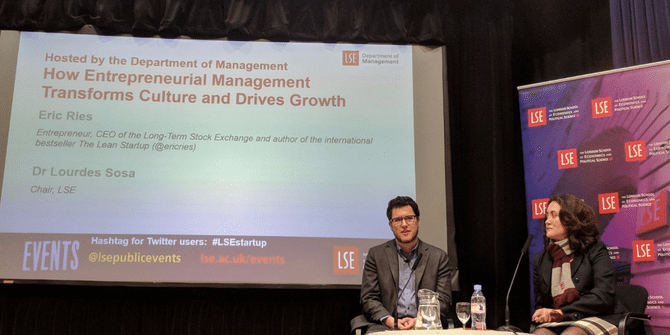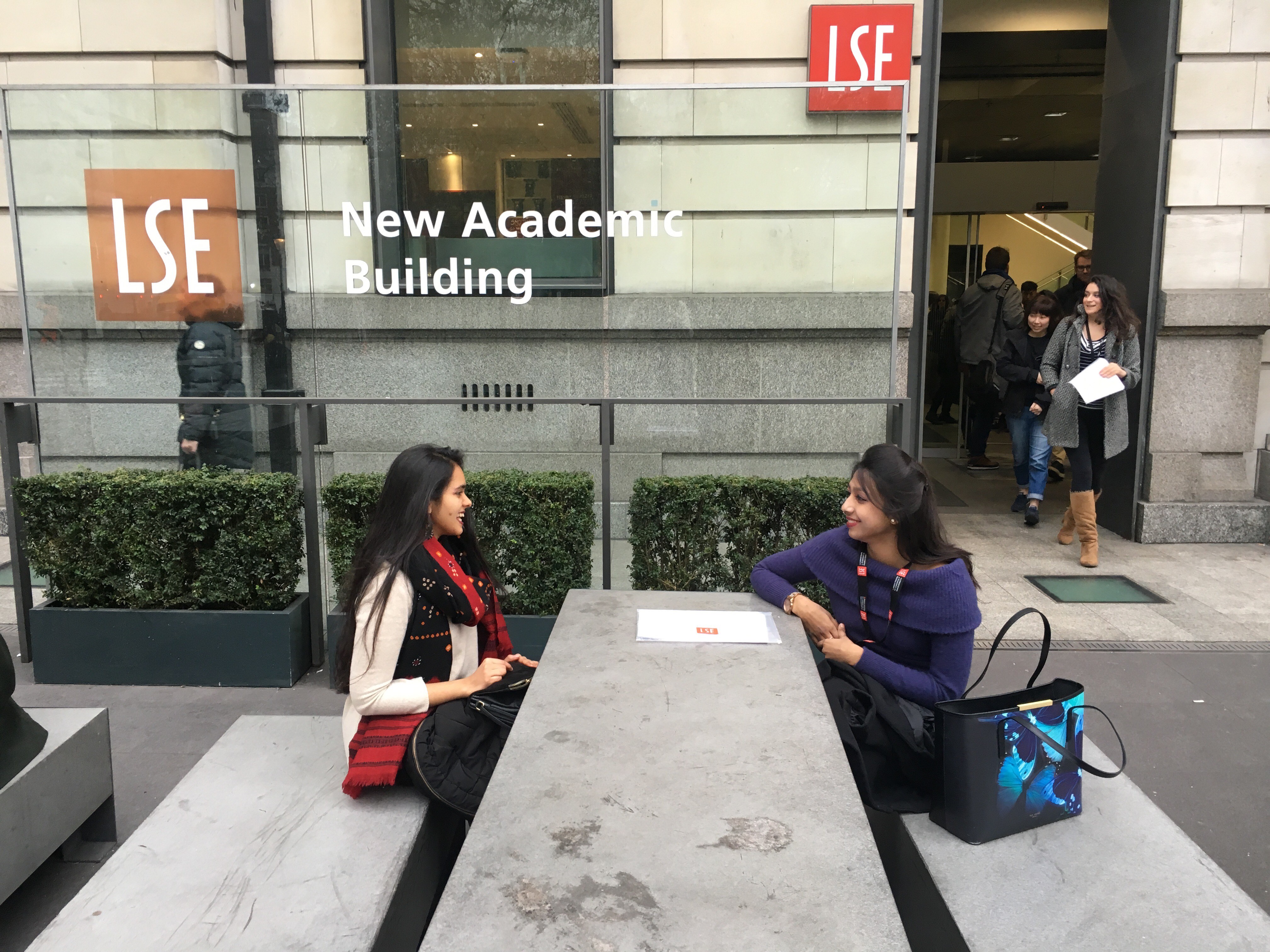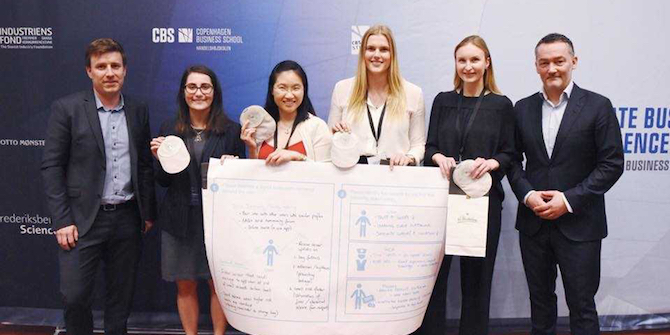During a month acting as CEO for Adecco Group Switzerland, Luca Feser discovered how design thinking can transform organisations. So upon returning to LSE, Luca decided to help apply these insights to Kickstart London, a start-up incubator uniting the city’s universities to create diverse problem-solving entrepreneurial teams.
Students looking for a job over the summer tend to go through the same emotions. You apply to some roles that are realistic, some that are safe backups, and then there’s a couple that you think if you get very, very lucky, you may have a shot in getting to the interview rounds. From there, you pray the stars align so that you can perform on game day.
This was the case with my application to Adecco, one of the largest and most prestigious recruitment specialists in the world. At the beginning of 2018, I applied to become the Adecco Group Switzerland CEO For One Month. It was a big opportunity, and I applied in hope rather than expectation.
However, early in 2018 I received an email congratulating me on the previous rounds alongside an invitation to attend the final round in Zurich. Long-story short, I was selected to become the Adecco Group Switzerland CEO For One Month.
I won’t talk about every experience I had during my time at Adecco, because I wrote an active blog that you can check out. But I want to share one that had a major-effect on what I am pursuing now. On the second and third day of my month, I was kindly invited to a design thinking workshop, with a major bank from Switzerland. The topic was; “How can we improve a candidate’s application experience?” The workshop was facilitated by John Kembel (member of the d.school at Stanford University) and it was through meeting him that I came across the real purpose of design thinking, and what it really meant.
Design thinking is not a tool. It’s a way of life and it should be educated in every school (John himself even uses the methodology in his parenting style). The fundamental concept of design thinking is centred on problem solving, rather than just searching for ideas. During a wonderful dinner overlooking the city of Zurich, John and I discussed how the d.school at Stanford University encourages students to spend the majority of their time understanding what the problem is. Once a problem is fully grasped, solutions automatically appear. Further, the more diverse perspectives that can be applied in trying to understand the problem, the more robust the solution will be as it helps to ensure that all sides are covered.
Learning about design thinking had an instant impact on my life. Before my month at Adecco, I joined a very small student startup Launchpad called Kickstart London. The concept was simple: apply to the programme with an idea, the best ten ideas were selected, teams were formed around those ideas, and then the students would follow a 10-week syllabus that would help further develop the idea into a startup. After the 10-weeks, each startup had the opportunity to pitch in front of investors.
A fantastic opportunity for students to become entrepreneurs, right? Yes, but I soon discovered a flaw in fundamental approach of the programme . During the demo day, every startup faced a question that they all struggled to answer; “What is the problem you’re trying to solve?” It made me realise that the programme had great intentions in trying to help students become entrepreneurs. Nonetheless, students came into the program with preconceived ideas before they knew the problem.
I discussed this issue with John Kembel and he told me that 95% of startups fail because they cannot answer this one simple question. He advised me to study design thinking and apply it to this student launchpad.
Inspired by my month as CEO, I decided to take on a leading role with Kickstart London, hoping to strengthen the programme through the insights of design thinking. . The aim is to build startups that have very diverse teams, so that they benefit from many perspectives when analysing the problem. In order to achieve this, we have partnered with every major university in London (LSE, King’s College, Imperial, UCL, LBS and University of the Art London). Alongside a great team of 10 people, Kickstart London has taken the student startup ecosystem by storm. This year over 800 students applied, making it the largest launchpad in London.
Sharing my experiences as CEO through blogs and articles has allowed me to have a self-reflective period in my life. I’ve had many people ask me, where do you go after being CEO?President, maybe, or king? A more serious question raised has been, why are you suddenly transitioning from a Fortune 500 company to a startup?
The answer is, I do not see it this way. Earlier I mentioned how during the two-day workshop we were trying to solve the question, “How can we improve a candidate’s application experience?” Most people would answer with “well, let’s brings some technology into the process, which makes everything more efficient.” Hopefully after reading so far, I do not have to explain to you what the issue is with this answer. It doesn’t matter whether it’s a startup or a conglomerate, they all face the same issue: they don’t understand the problem they’re trying to solve.
From now until March 2019, I will finish my MSc in Management of Information Systems and Digital Innovation, and carry on operating Kickstart London. I’m convinced that this year we will have startups going through our cohort that will be very valuable, and maybe even change parts of the world (dream big of course). Find with the problem, and the solution will follow.
Learn more about the MSc in Management of Information Systems and Digital Innovation programme: lse.ac.uk/misdi






